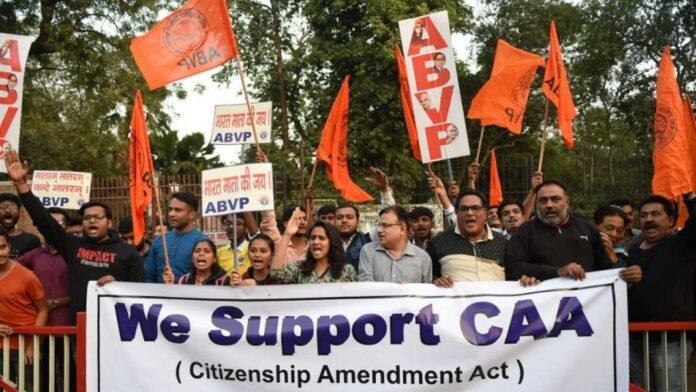CAA Row: Even as the Citizenship Amendment Act (CAA) prepares to take effect, did the Nehru-Liaquat pact’s failure in 1950 serve as a catalyst for the creation of “benign and narrowly tailored legislation” intended to protect the minorities in “non secular” countries in our neighborhood?
The CAA states that individuals from six minority communities — Hindus, Sikhs, Parsis, Buddhists, and Christians — who were forced to flee their homes in Afghanistan, Bangladesh, and Pakistan because of religious persecution, would no longer be considered illegal migrants.
Pakistan promptly broke its pledge, though. In October of 1951, Liyaqat Ali was assassinated. Following the theft of a sacred relic at Hazratbal, Srinagar, on January 3, 1964, there were widespread unrest in East Pakistan (now Bangladesh), which resulted in looting, burning, and fatalities targeted against the minority population. Despite the recovery of the sacred relic the following day, social unrest persisted.
Pakistan promptly broke its pledge, though. In October of 1951, Liyaqat Ali was assassinated. Following the theft of a sacred relic at Hazratbal, Srinagar, on January 3, 1964, there were widespread unrest in East Pakistan (now Bangladesh), which resulted in looting, burning, and fatalities targeted against the minority population. Even though the sacred relic was found the following day, communal disturbances continued.
In fact, the then Union Home Minister Gulzari Lal Nanda claimed that Pakistan was not carrying out its share of the Nehru-Liyaqat accord while India was carrying it out in response to a calling attention motion in the Lok Sabha.
Nanda, who held the position of caretaker prime minister of India twice following the assassinations of Nehru and Lal Bahadur Shastri, expressed that India cannot ignore the plight of minorities in Pakistan, saying that “we cannot turn our face against sufferings, the torture of their bodies and spirit and all that they are undergoing there.”
When Nehru’s home minister said, “We cannot bar their way, if they [the Hindu minority in Pakistan] find it impossible to breathe the air of security in their country and they feel they must leave it,” he was sitting in parliament as prime minister. We lack the courage to advise them to stay there and get killed. After Nehru suffered a paralyzing stroke on his left side in Bhubaneswar three days later, Nanda took over as Prime Minister Nehru’s temporary executive successor.
Based on the argument that persecution stemming from political or religious movements cannot be equated with the systemic religious persecution that the CAA seeks to address, the CAA has excluded Ahmadias, Shias, Baha’is, Hazaras, Jews, Baloch, and Atheist communities.
In a similar vein, the CAA has not been applied to instances involving Rohingyas, Tibetan Buddhists, or Tamils from Sri Lanka because it is not intended to be a comprehensive answer to global problems. There is a claim that the Indian parliament is unable to address the different types of persecution that occur in different nations all over the world.
According to a ministry of home affairs document, the CAA only categorizes religious persecution in nations where a state religion is practiced, not on the basis of religion.



